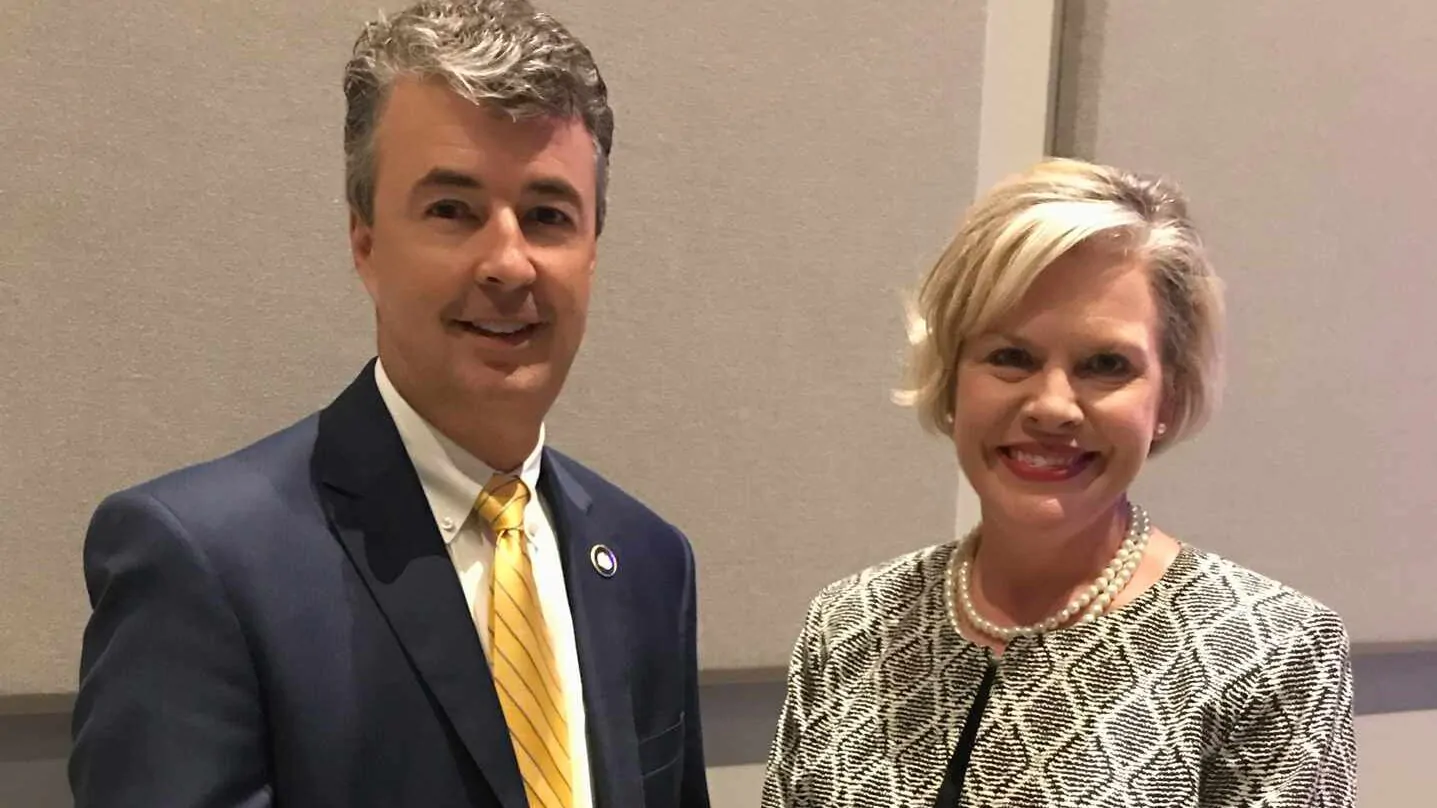Alabama Attorney General Steve Marshall penned a letter to Governor Kay Ivey calling for the reappointment of Alabama Board of Pardons and Paroles Chair Leigh Gwathney.
Gwathney’s term as chair of the Alabama Board of Pardons and Paroles expired Monday, but she will continue to serve in the role until she or her successor is appointed by Ivey.
Marshall issued a press release announcing his formal request to the governor, calling for Gwathney’s reinstatement on Tuesday morning.
“The most consequential decision you made during the 2019 parole reforms was placing Ms. Gwathney at the helm of the board,” Marshall wrote in his letter to Ivey.
“She has earned the trust of law enforcement, prosecutors, and crime victims across Alabama,” he continued.
The letter was signed by 76 Alabama district attorneys and local law officials.
Alabama’s parole rate has declined dramatically since Gwathney was appointed to her position in 2019. Before her tenure, the parole rate was routinely more than 40 percent, coming in at 53 percent in 2018, and 55 percent in 2017.
During Gwathney’s time as chair of the three-person parole board, Alabama’s parole rates fell to a low of 8 percent in 2023.
A September 2024 monthly report from the Alabama Bureau of Pardons and Paroles recommended 83 percent of applicants for the fiscal year be granted parole; however, the board only granted it to 20 percent of the year’s applicants. The parole rate has since increased to 26 percent in 2025.
Gwathney has drawn scrutiny from lawmakers for the board’s failure to adopt validated parole guidelines or update them every three years.
Representative Chris England, D-Tuscaloosa, introduced legislation during the 2025 legislative session to force guideline changes and greater overview of the board. Sen. Clyde Chambliss, R-Prattville, also introduced legislation aimed at restructuring the board.
“I don’t think there is a word that adequately describes how badly the last six years have been in terms of what the law was, what the goals were, and how, I am pretty sure, under her leadership, the parole board missed almost every one of those goals,” said England. “If there is a checklist out there for what is necessary to lose your job, I believe Leigh Gwathney hit every one of them.”
The parole board has also been sued by an attorney who’s argued it has been responsible for “violations of administrative and statutory duties.”
Marshall pointed to the period before Gwathney’s tenure in his letter, arguing it was a time in which Alabama “was on a misguided and dangerous trajectory related to crime and punishment.”
He also criticized Gwathney’s predecessor as chair, Lyn Head, writing that she “believed that her duty was to address prison overcrowding, and as you know, that came at a high societal cost.”
Gwathney took office in 2019 after the legislature approved an overhaul of the board in response to a triple murder committed by parolee Jimmy O’Neal Spencer. Spencer has since been tried and executed.
“Reappointing Leigh Gwathney is about more than leadership—it’s about protecting Alabama families from violent criminals and honoring the voices of victims who too often go unheard,” said Marshall. “Ms. Gwathney has never lost sight of what’s at stake: the safety of our citizens and the dignity of those who have suffered at the hands of violent offenders.”
Marshall argued for Gwathney’s reappointment citing that 85 percent of Alabama’s prison population consists of violent offenders—a legal classification for a list of crimes including murder, assault and burglary.
“[Gwathney’s] willingness to continue to serve in the face of unprecedented and unwarranted criticism by the liberal media shows a level of courage, conviction, and dedication to the cause that is rarely seen in Montgomery,” Marshall wrote.
“Ms. Gwathney has proven herself to be beyond the influence of the anti-incarceration movement, ready and willing to fight for the law-abiding citizens of this state,” he continued.
State law requires the speaker of the Alabama House of Representatives, the Senate president pro tempore and lieutenant governor to submit a list to the governor of five nominations for the seat. Ivey must then choose a nominee from the list within 10 days.


















































